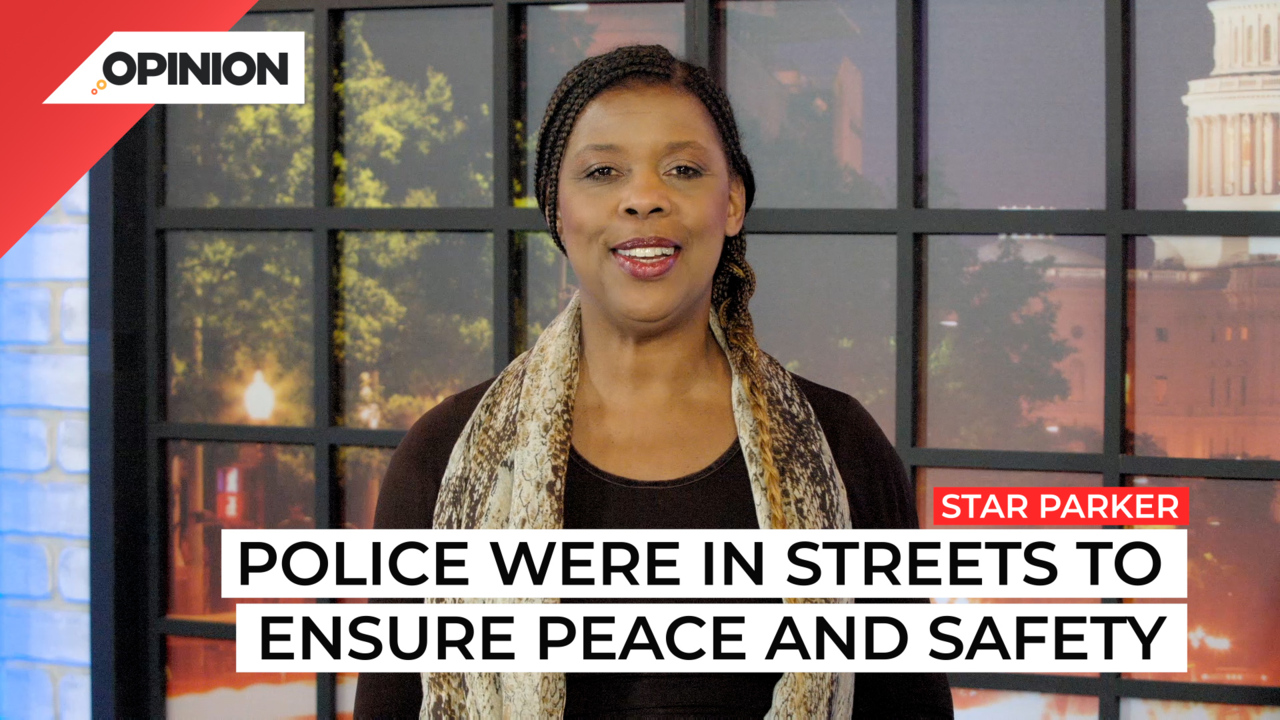
Commentary
-
Our commentary partners will help you reach your own conclusions on complex topics.
As crowds of people gathered to watch the ball drop in New York City on New Year’s Eve, police officers were out in the streets to ensure the peace and safety of the friends and families that gathered for the new year. You have to expect the unexpected, possibly more than in any other job in America, when you serve as a police officer.
Sadly, the unexpected that night resulted in three of those police officers being attacked with a machete.
Since the new year began, we’ve seen headlines of riots in Atlanta where they smashed windows, threw rocks, and set a police vehicle on fire.
We’ve even seen that a member of the Democrats’ leadership in Congress, House Democratic Whip Katherine Clark, had a daughter arrested during a protest in Boston. She has been arraigned on charges that includes an assault on a police officer.
Recent headlines of riots destroying property and attacks against law enforcement officers may detail new incidents, but they sadly do not tell a new story. This has long been an issue making headlines for too many years
In 1992, I operated a small publishing business in Los Angeles. It was destroyed as a result of riots that ensued after four police officers were acquitted of charges of excessive violence in the beating of Rodney King.
It changed my life. I focused my resolve to work in public policy to change destructive realities that were taking our distressed communities, and the whole nation, in what I saw as the wrong direction.
That was about 30 years ago. Yet, it still is going on: chaos and destruction.
In order for communities to thrive, it is vital that there be a reasonable level of trust and cooperation between residents and the public officials who serve and protect them.
To be sure, police who abuse their power are dangerous to the community.
Derek Chauvin had 18 complaints against him before he committed his final deadly act against George Floyd.
Personal responsibility must be the hallmark in a free country, whether we’re talking about obeying the law or enforcing it.
However, policing is a dangerous profession, and it is notable that most police officers never fire a weapon throughout their entire careers.
We need to strike a balance that enables police officers to act appropriately to protect the public and defend themselves, but we also need better processes to identify and remove those who cause harm in their communities and undercut the public’s trust in the entire profession of policing.
Better data collection, more transparency, improved training, and open communication between police and key people in their communities are some of the solutions to work towards.
At the same time, however, violence and destructive actions will only continue to put police officers and individuals in harm’s way, while destroying the very communities that are desperately trying to build towards a peaceful and prosperous future.
-
Trump has an excellent opportunity with Black voters
Former President Donald Trump’s gains with Black voters have narrowed since President Joe Biden dropped out of the 2024 race. Prior to his dropping out, polling indicated that Biden was losing support among Black voters, who had been vital to his 2020 victory. The Trump campaign has been courting Black voters, using the recent Republican…
-
Biden is wrong to support Supreme Court reform
The Supreme Court’s public legitimacy crisis continues to escalate after it issued a series of major recent decisions perceived by many Americans as overtly partisan, most recently the July 1 ruling in Trump v. United States. Calls to reform the Supreme Court long predate these rulings but have gained significant momentum and popularity in their…
-
Liberals stir fear over Supreme Court immunity decision
In a landmark decision, the Supreme Court ruled July 1 in Trump v. United States that presidents are immune from prosecution for any presumably “official” act taken while in office, including criminal acts. Some legal experts and liberal justices were “horrified” by the opinion and warned of grave consequences, while Chief Justice John Roberts, in…
-
Debate disaster raises questions about Biden’s capacity to lead
Even former House Speaker Nancy Pelosi, D-Calif., has stated that it’s valid for voters to question President Joe Biden’s mental health given his recent debate performance. Lawmakers from the opposing party are calling for a select committee to examine his mental health. Watch the video above as Straight Arrow News contributor Star Parker argues that,…
-
Black Americans should vote for Donald Trump
In the 2020 elections, 92% of single-race Black, non-Hispanic voters cast their ballots for President Joe Biden, while only 8% voted for Donald Trump. That one-sided turnout followed a summer of nationwide protests against police violence largely organized by Black Americans in the wake of George Floyd’s murder, and then-President Trump’s crackdown on those protests…
Latest Opinions
-
 U.S. Department of Defense
U.S. Department of Defense
Congress still trying to figure out how to reduce wasteful military spending
-
 DVIDS
DVIDS
US Navy, Air Force making waves with new weapons at RIMPAC
-
 Getty Images
Getty Images
Israeli PM Netanyahu meets with Trump at Mar-a-Lago
-
 Getty Images
Getty Images
Growing US nuclear power resurgence reaches the nation’s heartland
-
 Getty Images
Getty Images
Beer from the sun, other solar thermal projects get government funding
Popular Opinions
-
In addition to the facts, we believe it’s vital to hear perspectives from all sides of the political spectrum.


